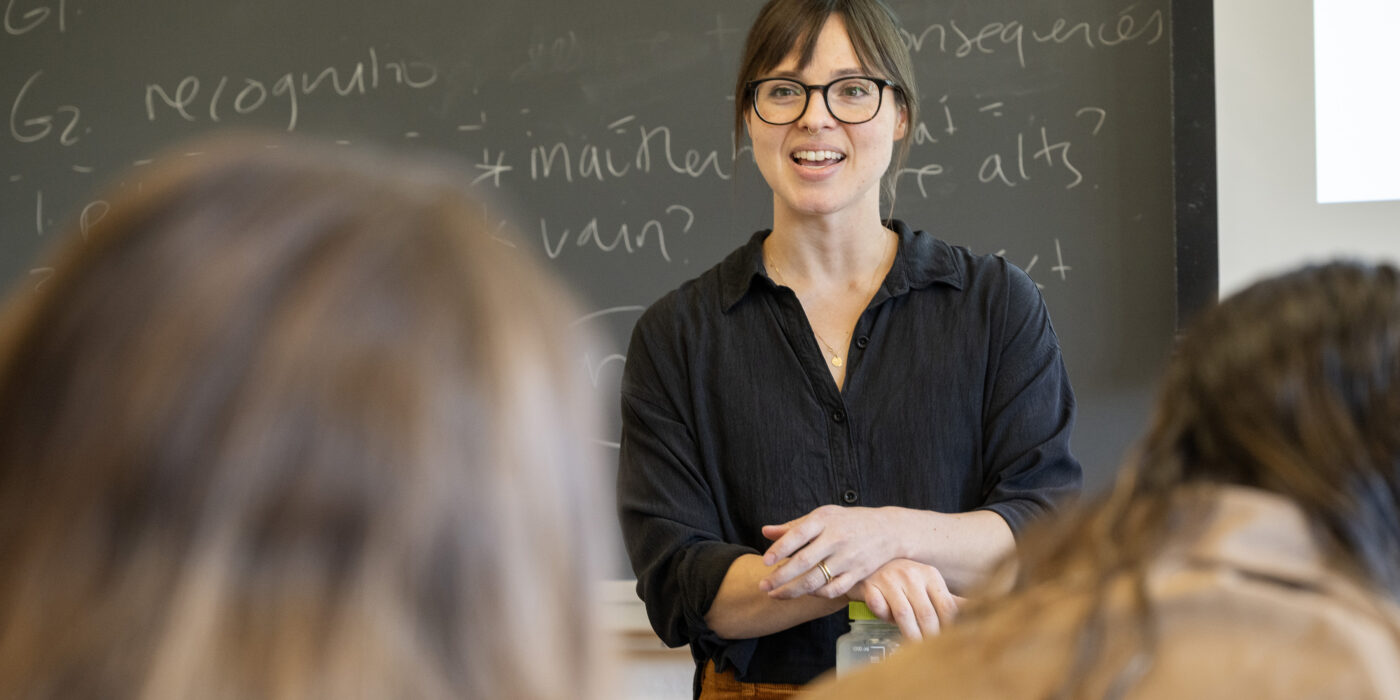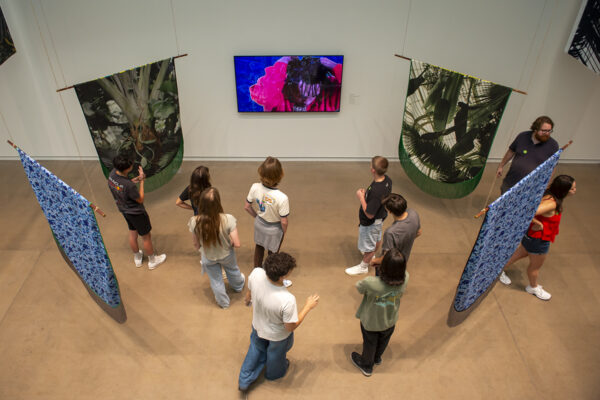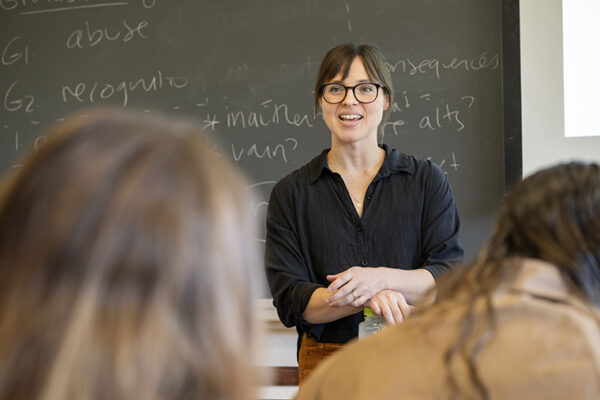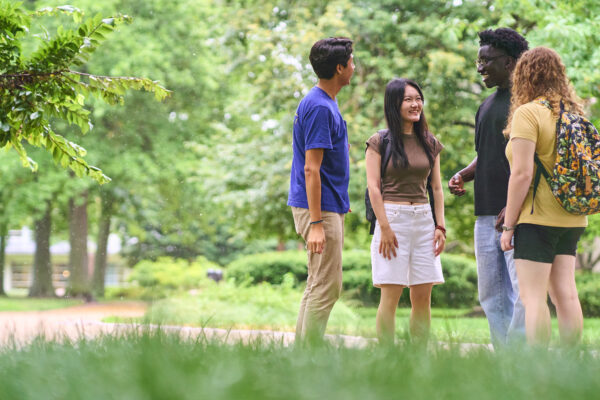Chancellor Andrew D. Martin has announced a new WashU initiative to further advance academic freedom, viewpoint diversity and civic education. The Ordered Liberty Project will recruit endowed faculty across disciplines and support existing programs to build an intellectual culture where rigorous debate strengthens both scholarship and student learning.
“The Ordered Liberty Project is a universitywide effort grounded in a simple but profound conviction: that a healthy democracy depends on the free exchange of ideas and that institutions of higher education must be active stewards of that exchange. We are not alone in this responsibility, but we are uniquely positioned to lead,” Martin said in his videotaped announcement Sept. 4 at the Weidenbaum Center on the Economy, Government, and Public Policy speaker series.
Andrew Reeves, a professor of political science in Arts & Sciences, director of the Weidenbaum Center and a senior advisor to the chancellor, and Stefanie Lindquist, the Nickerson Dean and a professor at WashU Law, are co-leading the search for three new faculty members with expertise in classical liberalism, a political philosophy that emphasizes individual liberty, limited government and free markets.
Peter Boumgarden, the Koch Professor of Practice in Family Enterprise and director of the Koch Family Center; Betsy Sinclair, the Thomas F. Eagleton University Professor of Public Affairs and Political Science in Arts & Sciences; and Abram Van Engen, the Stanley Elkin Professor in the Humanities in Arts & Sciences and director of the John C. Danforth Center on Religion and Politics, also serve on the Ordered Liberty advisory committee. Reeves expects the new faculty will join WashU for the 2026-27 academic year.
“The goal is not to persuade students that one side has the answers, but to give them meaningful exposure to competing arguments,” Reeves said. “As John Stuart Mill reminded us, ‘He who knows only his own side of the case knows little of that.’ We grow as scholars when our ideas are tested against the strongest critiques, and we prepare our students to be leaders when they learn to engage thoughtfully with perspectives different from their own. That is the work of a university.”
Cliff and Laurel Asness, who served on the Parents Council, have pledged $3 million to establish one of the distinguished professorships.
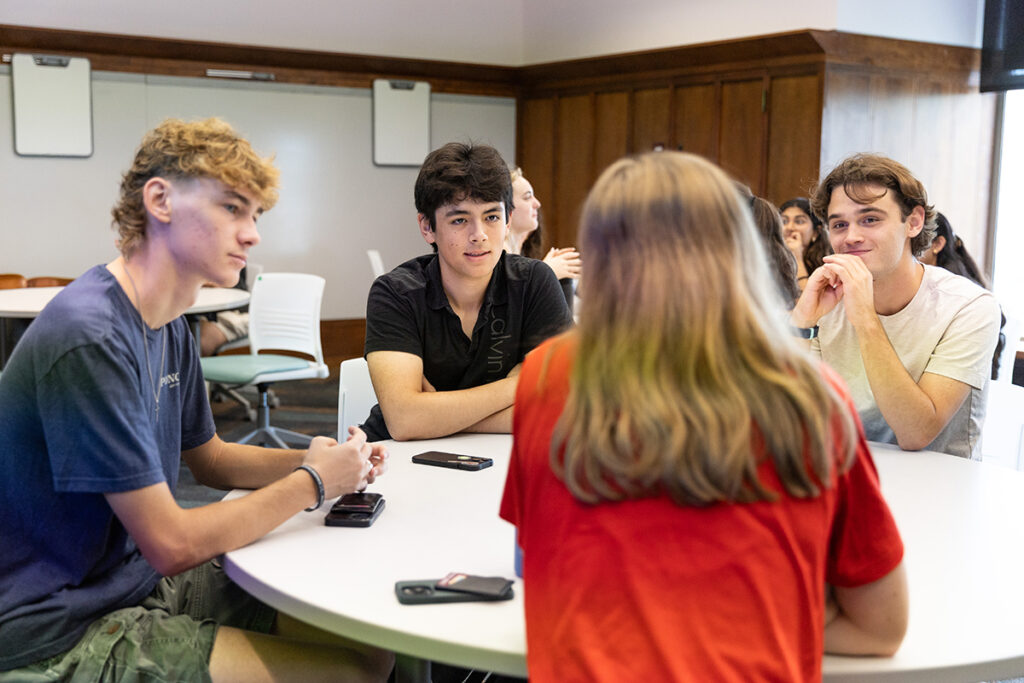
An Office of the Chancellor initiative, the Ordered Liberty Project will connect existing programs that promote free speech and civic education such as “Dialogue Across Difference” and the Bauer Leaders Academy in Student Affairs; the Danforth Center on Religion and Politics and the Frick Initiative in the Office of the Provost; the Civil Society Initiative and the Weidenbaum Center in Arts & Sciences, and an array of courses and programs across the schools. Ultimately, Reeves expects the Ordered Liberty Project will build a stronger community of scholars and students, supporting new events and programming while fostering opportunities for deeper engagement across disciplines.
Martin said the phrase “ordered liberty” captures the promise of higher education. The phrase is attributed to George Washington, central to the writings of Edmund Burke and frequently invoked by the Supreme Court.
“By ordered liberty, we mean something both old and deeply relevant: that individual freedom is most meaningful — and most enduring — when paired with the habits, institutions and norms that give it structure and purpose,” Martin said. “It is liberty not as license, but as a disciplined freedom shaped by mutual responsibility, law and moral restraint. The freedom to speak and to listen. To dissent and to reason. To pursue our own good, but always in a shared civic space. In that sense, ordered liberty is not a departure from what we already do at WashU. It is a name for it.”
